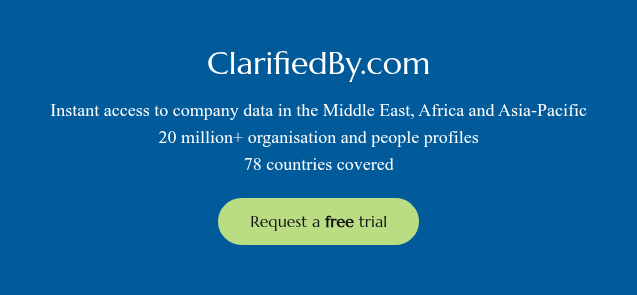Managing business disputes in the Middle East and Africa: Key considerations for success
Read moreWhat is business intelligence?
Anyone introducing themselves as a lawyer, accountant or doctor need offer no further explanation of their profession, knowing that their audience can perfectly imagine them negotiating contracts, filing annual accounts, or diagnosing a patient’s ailments. Not so the Business Intelligence (BI) practitioner.
An explainer and five myths debunked
Firstly, let me distinguish between what is referred to as BI in the context of IT and software (a technology-driven process for analysing a company’s own metrics) and my own field, the subject of this short article: the provision of information and analysis from the market to help companies take decisions relating to third parties – usually companies and the people behind them – either in the context of a new relationship, or one that has become contentious.
The essence of what we now call BI is of course nothing new; most businesspeople since the beginning of time would naturally ‘ask around’ before entering a new deal or trading relationship, as a basic way of managing risk. However, as such relationships have become more complex and global over the last 30+ years, and as regulations have been introduced to combat corruption and enforce sanctions, the BI industry has developed from a niche field to a mature industry – to the point where most large multinational companies today will regularly engage with BI advisers. This is especially true in emerging regions such as the Middle East and Africa where transparency and levels of corporate disclosure are low.
In this article, Jonathan Siklos, Diligencia’s Regional Director, dispels five common myths about BI and sheds light on the true benefits of the field.
Myth 1: it’s a nice to have
Fact: engaging the right BI adviser at the right time can mean the difference between a successful venture and a cripplingly expensive error.
I have lost track of the number of times that I’ve taken a call from an agitated client asking me to conduct due diligence on – in other words, build a profile of – an existing business partner. Within a minute of them describing the origins of the partnership and what has gone wrong, I get a sinking feeling that, if they’d only called me nine months ago, I could have pointed them in another direction, potentially even without charging a fee.
Over time, working in this field you develop a sense of when something is not quite right, for example when a name purported to be a member of a ruling or royal family doesn’t ring true, or you recognise the trademarks of an obvious fraud. But even before that, you learn the questions which will help your client spot a red flag. Did you source the potential partner yourself, or did they approach you at a conference? Are they the owner or a director of the company they claim to represent? Do they represent a shadowy VIP, whose absence they attribute to the local culture?
And that’s just the practical risk of being exposed to the wrong business partner. Imagine the waste of resources over three years of pursuing a legal dispute when it becomes clear that the counterparty has no money, or that there is a queue of other creditors chasing them. Imagine the reputational damage of failing to spot that a sales agent is politically exposed and thereby ripe for corruption, or being slapped with an eight-figure fine from the regulator and having your dollar accounts frozen for inadvertently working with sanctioned entities – two scenarios which could have been addressed by compliance-driven due diligence. Further examples abound, but one thing is clear: engaging a credible BI firm to advise on these issues is not a nice to have!
Myth 2: it’s just a bit of googling
Fact: nothing raises the hackles of a BI analyst like the reduction of their chosen field to the level of a quick online search. You have been warned!
In the booming contemporary era of online investigative journalism, and when government intelligence agencies are now overwhelmingly refocused on open-source intelligence (“OSINT”), every BI analyst knows the value of information that can be gathered online, and especially from social media. But the value lies in having the patience to trawl through reams of information in pursuit of that relevant nugget, and the analytical skill – not to mention local language capability – to recognise it when it comes along.
Online and media research is built on a foundation of legal entity data gathered from official sources. If your subject is a company, who owns and controls it? If it’s a person, what corporate interests – shareholdings and directorships – do they have? In developed markets, this can be achieved at the click of a mouse; elsewhere, in most jurisdictions in the Middle East and Africa, for example, it can rest upon having contacts on the ground who understand what information and documentation is available at the local registry, and even which window they should wait at for the shortest queues.
Gaps in knowledge may be filled by making enquiries with well-placed sources who know the subjects of the investigation. But making enquiries takes skill, training and planning. How do you find the right people to speak to in the first place? How do you speak to someone without giving too much away? And, ultimately, how can you trust someone you don’t know that well?
These questions are best addressed by the most valuable of the BI skills: analysis. It is the ability to analyse and contextualise findings for a client that raises the field of BI well above just a bit of googling.
Myth 3: if you haven’t worked in government, you can’t work in BI
Fact: BI analysts come into the field from a range of backgrounds; many even start from scratch and learn their trade on the job.
Perhaps for obvious reasons, the BI industry has a reputation for being populated by former government intelligence officers. But this has not been the case for a long time now and, even in the early days of the industry, it was rarely true.
30 years ago, when the industry was in its infancy, its original practitioners tended to be former lawyers or former journalists. This was no accident, given that these are professions built on researching, recognising, understanding and communicating relevant information to an intended audience. As the field grew, and the number of companies operating in it increased, more lawyers and journalists were attracted into it, as were political risk analysts, former police officers, and, yes, the odd erstwhile spy.
Now, most analysts begin their careers in the industry; unthinkable 15 years ago. As a long-time recruiter into the BI industry, I will consider any CV as long as there is evidence of: intellectual rigour and a commitment to truth; curiosity (verging on nosiness is desirable); tenacity; and, lastly, a certain quirkiness that suggests the candidate would be more at home in the BI field than the traditional occupations of law, accounting, journalism…or espionage.
Myth 4: BI analysts don’t mind breaking the rules to get the job done
Fact: the best BI firms work to forensic standards and follow ethical guidelines as diligently as any professional service firm.
After nearly 20 years in the industry, I have a confession to make: not only have I never gone through a bin, bugged a phone, or tailed a target…but I’ve also never seen it done by my colleagues. As in any industry, there is a spectrum of both quality and ethical standards, and no doubt at its margins there are those who will do what they’re told and not ask questions. I am just fortunate to have never worked for a company with anything less than impeccable integrity.
So why the persistence of this myth? I have long suspected that the industry has been the victim of various Hollywood depictions of shadowy corporate investigators being called in to take care of business while the client, some prestigious firm, maintains plausible deniability. Think Russell Crowe negotiating with kidnappers in Proof of Life; think George Clooney’s consigliere to a prestigious New York City law firm, Michael Clayton; and, of course, Tom Cruise’s former military investigator par excellence Jack Reacher. If only my day job were that exciting!
There is no established industry regulator, training programme, or watchdog, as there is for journalists or private investigators. This is both an industry strength and weakness; a lack of structure allows dynamic development, as blue-chip clients seek advisers who can act with impeccable standards of integrity, rather than using them to do the work they cannot be seen to do.
Myth 5: BI is just due diligence
Fact: BI includes a range of services provided to a range of clients in support of a range of challenges. It’s no more one-size-fits-all than the services provided by lawyers, accountants or consultants.
The best way to describe the BI services you offer depends on the prospective client you are talking to. Usually, to generate interest, it is best to focus on the use case: “I help compliance professionals manage third party risk”; “I work with disputes lawyers to identify and enforce against assets in opaque jurisdictions”; “I partner with deal teams to ensure the suitability of an investment”. Or, more generally: “I research companies and the people behind them.”
Behind these explanations lies a range of services carefully tailored to meet the needs of each type of client: differing levels of compliance-driven due diligence; dispute support work such as asset tracing and fit-to-sue assessments; investment due diligence focusing on reputation and integrity; market entry studies mapping prospective clients or competitors. And behind these services sits practitioners who are focused on the dynamics of gathering BI in the contexts of a compliance programme, a legal dispute, or an investment in a new venture.
Perhaps my favourite explanation of my field is: investigative journalism for an audience of one. It doesn’t focus on a use case, so might not work in a sales context, but certainly makes it clear that my work is more than just due diligence.
Diligencia provides corporate intelligence and due diligence solutions for emerging markets across Africa and the wider Middle East. Our vision is to deliver clarity, inform opinions and enable decision-making for clients in jurisdictions often poorly served by accurate public domain information.
- Asset tracing in the Middle East and Africa: ground rules, guidelines and good practice
Company research in Francophone Africa: Instructions not included
The Case for Clarity - the importance of verified company information

